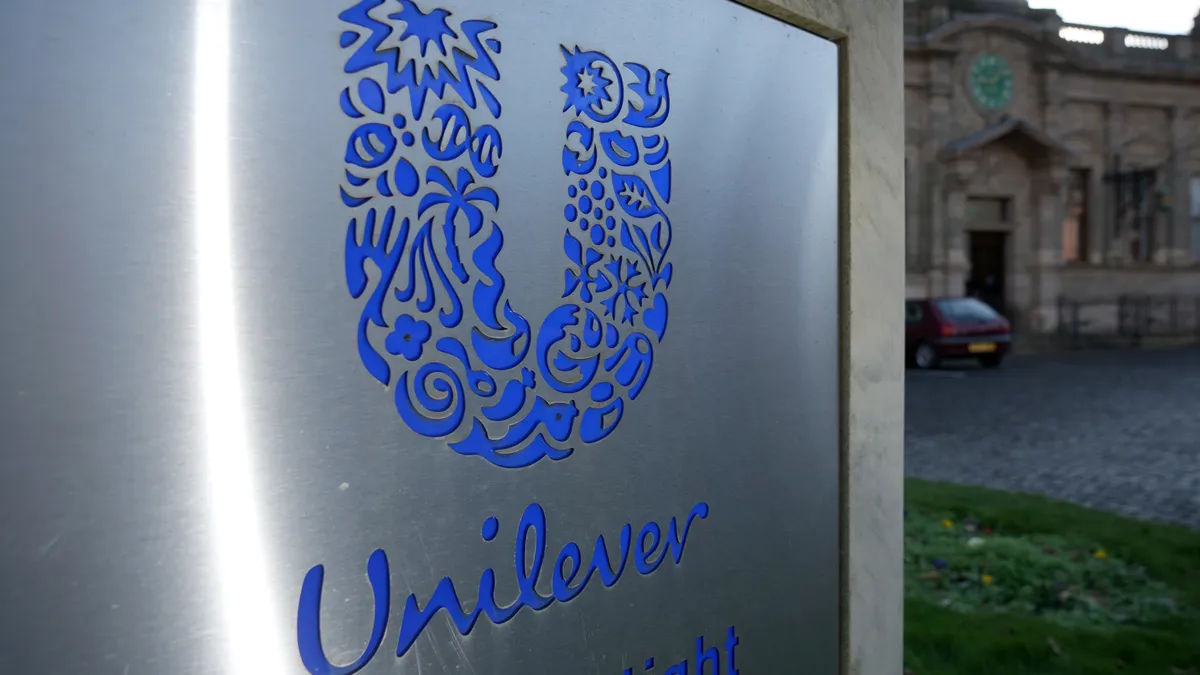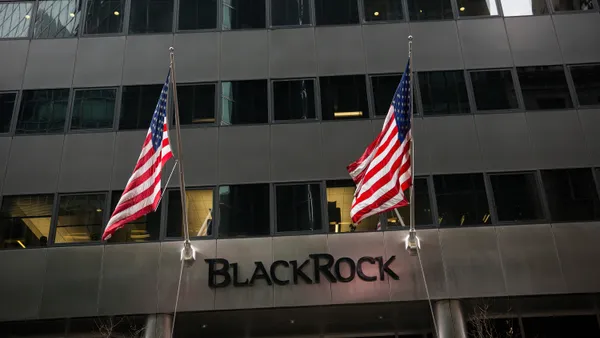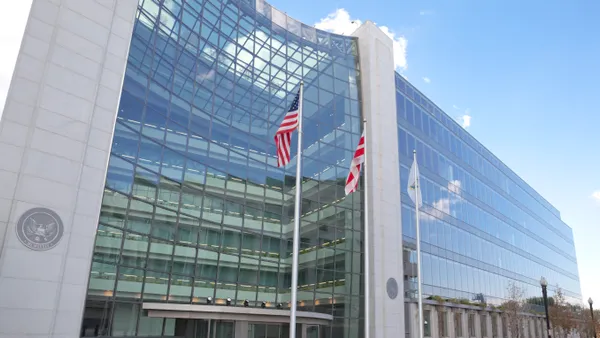Dive Brief:
- A U.K. competition regulator said last week it was examining whether shoppers were misled by “green” claims from Unilever products, including Dove, Comfort and Cif.
- The multinational consumer packaged goods giant raised concerns at the Competition and Markets Authority for vague and broad claims about environmental impacts, unclear statements on recyclability and its use of green imagery and logos.
- The investigation comes as part of a wider compliance review of environmental claims from household products and other fast-moving consumer goods, which the CMA launched in January.
Dive Insight:
The CMA’s initial review of Unilever uncovered a range of concerning practices, from marketing ingredients in a way that may exaggerate how “natural” an ingredient is to sustainable claims that apply to a single aspect of a product but suggest the sustainability of the entire item.
“So far, the evidence we’ve seen has raised concerns about how Unilever presents certain products as environmentally friendly. We’ll be drilling down into these claims to see if they measure up,” Sarah Cardell, chief executive of the CMA, said in the press release. “If we find they’re greenwashing, we’ll take action to make sure shoppers are protected.”
While Unilever will cooperate with the investigation, it refutes “that our claims are in any way misleading,” a Unilever spokesperson said. The company was “surprised and disappointed” by the formal investigation announcement given their efforts to make “responsible claims about the benefits of our products on our packs.”
“We use the On-Pack Recycling Label (OPRL) to provide consumers with information on how to dispose of our packaging after use, and Unilever is a founding signatory of the UK Plastics Pact, which brings together the entire plastics packaging value chain to tackle the challenges around plastic waste,” Unilever said in a statement, refuting the claim that some of their brand packaging is not recyclable as a whole.
Unilever has faced other concerns of greenwashing in the U.K. The self-regulated Advertising Standards Authority banned a video ad for Unilever’s Persil laundry detergent in 2022 for its “tough on stains, kinder to our planet” logo, which the ASA claimed could not be substantiated.
In Unilever’s third quarter investor call of 2023, new CEO Hein Schumacher made a point to narrow the scope of many brands from being environmentally sustainable and for social good to a climate and plastics focus.
"Unilever’s reputation in this area is well-deserved, but … our efforts are being spread too thinly," Schumacher told analysts.
ASA told the company to ensure environmental impacts are clear in further ads. The British Code of Broadcast Advertising requires “that claims such as ‘greener’ or ‘friendlier’ could be justified if the advertised product provided a total environmental benefit over that of the advertiser’s previous product or competitor products,” according to the ASA.
Since the CMA announced its review of green claims earlier this year, a number of suppliers have made amendments to their product advertising or removed some of the green claims, from tags like “eco-friendly” to “sustainable.”
The launch of the investigation “is yet one more example showing that it is not the ESG laggards that are attracting litigation and regulatory attention; rather, it is the companies that seek to burnish or tout their ESG credentials that are attracting the attention,” Kevin LaCroix, attorney and executive vice president of insurance intermediary firm RT ProExec, said in a blogpost.
“More and more people are trying to do their bit to help protect the environment, but we’re worried many are being misled by so-called ‘green’ products that aren’t what they seem,” CMA’s Cardell said.
Companies could face similar scrutiny in the U.S. as consumer protections groups are working to curb misleading or false advertising about recyclability and sustainability. The Federal Trade Commission, the U.S. equivalent of the CMA, received public comments at the beginning of this year in the process to update its Green Guides for environmental marketing claims. The FTC sought comments on consumer interpretation of terms like “net zero,” “low carbon,” “carbon neutral,” “organic,” and “sustainable.”
Editor’s note: This story was updated with comments from Unilever.











